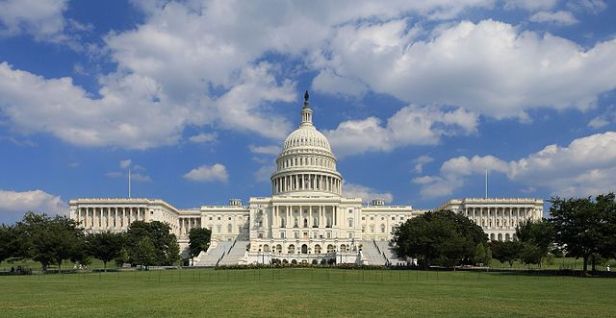By Laura Szymanski, GSA Science Policy Fellow
During the lame-duck session of the 115th Congress, Congress was able to pass several bills that have been signed into law, although many that were expected to have further movement did not as a result of late disputes over border wall funding.

On 13 December 2018 and 19 December 2018 the Senate and House, respectively, passed the National Quantum Initiative Act with the aim of advancing quantum research and technology. Quantum research is the use of the laws of quantum physics for the storage, transmission, manipulation, computing, or measurement of information. This bill will establish a National Quantum Initiative (NQI), a 10-year, $1.2 billion plan to further U.S. quantum research. Through this bill, quantum research will be advanced by the promotion of quantum research opportunities at the undergraduate, graduate, and postdoctoral level; the development of quantum research facilities; and the promotion collaboration across universities, industry, government agencies, and government labs. This bill was signed into law on 21 December 2018.
On 20 December 2018, the President signed the Agriculture Improvement Act of 2018, more commonly known as the Farm Bill, into law. This bill was stalled for several months during negotiations between the House and the Senate. Initial disputes concerned Supplemental Nutrition Assistance Program (SNAP) requirements and later, following record-breaking wildfires, forest management.
The final version passed does not include tighter controls on SNAP, including work requirements for food stamps, and does not include forest-thinning projects, both pushed by Republican lawmakers. The final version does include billions of dollars to farmer subsidies; increase acreage in the Conservation Reserve Program (CRP); legalize the farming of hemp; reauthorize key research programs, including the Sustainable Agriculture Research and Education Program (SARE), the Specialty Crop Research Initiative (SCRI), and the Agriculture and Food Research Initiative (AFRI); and allocate permanent funding towards farmers’ markets and research funding of organic farming.
Debate over the SNAP requirements may not be over as, following the signing of this bill, the Trump Administration proposed a rule that would expand the work requirements of food stamp recipients.
On 20 December 2018 and 21 December 2018 the Senate and House, respectively, passed the Nuclear Energy Innovation and Modernization Act (NEIMA), which establishes structure for licensing of advanced reactors. The bill directs the Nuclear Regulatory Commission (NRC) to create a program of fees for uranium producers and improve efficiency in uranium regulation. This bill has been presented to the President, but has not been signed into law as of 10 January.
On 18 December 2018 and 20 December 2018 the Senate and House, respectively, passed the National Integrated Drought Information System (NIDIS) Reauthorization Act of 2018 which reauthorizes the program through 2023. This bill, introduced by Senator John Thune (R-SD), chairman of the Senate Committee on Commerce, Science, and Transportation, provides drought information to those affected, integrates seasonal and subseasonal forecasting, and promotes private and academic partnerships, through the NIDIS program under the National Oceanic and Atmospheric Administration (NOAA). This bill also contains several updates to the Weather Research and Forecasting Innovation Act of 2017, including recommendations for an increase in funding, authorization of an “Earth Prediction Innovation Center” with the aim of promoting the transition of research to practice, and extends the authorization of the Commercial Weather Data Pilot program through 2023. This bill was signed into law on 07 January 2019.
Additionally, on the final full day of the 115th Congress, the Senate approved several nominations of top science positions which are further discussed here.
Bills that failed to advance during the lame-duck session include the reauthorization of the National Flood Insurance Program (NFIP), which expired 21 December 2018, the Space Frontier Act, which passed by the Senate but failed in the House, the National Geologic Mapping Act Reauthorization Act, and the National Landslide Preparedness Act.
Any bills that did not pass during the 115th Congress will need to be reintroduced in the following Congress for further consideration.
###